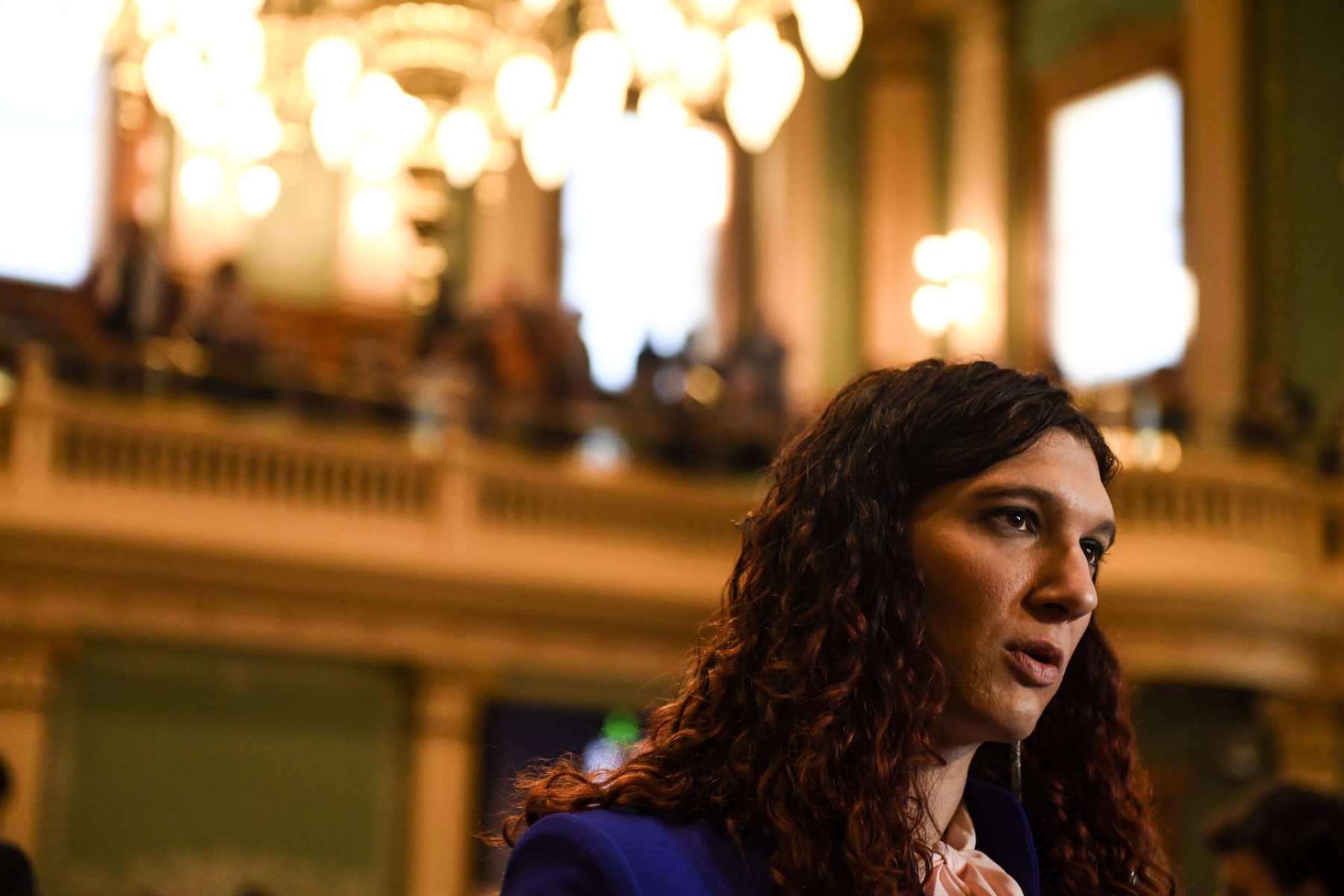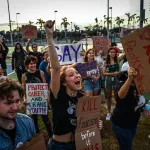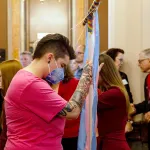We’re the only newsroom dedicated to writing about gender, politics and policy. Subscribe to our newsletter today.
This was a record-shattering year for LGBTQ+ candidates for political office. But Elliot Imse can’t help but think of the candidates who never ran.
Two hundred candidates endorsed by the LGBTQ Victory Fund, which works to increase the number of queer elected officials, won this November, while 29 other races are still undecided.
Still, many of those candidates faced an ugly reality: Being an out LGBTQ+ person seeking office in the United States makes you a prime target for discriminatory attacks.
“This year, we saw a dramatic increase in the number of homophobic and transphobic attacks on our candidates compared to anything we’ve seen in the last few cycles,” Imse, the senior director of communications for the Victory Fund, said. “And not only were they more frequent, but more blatant than we’ve seen in the last few cycles.”
Across the nation, LGBTQ+ candidates confronted ads that demonized them, playing on decades-old stereotypes that queer people are sexual predators and pedophiles — outsiders in the communities they seek to represent.
In San Antonio, school board candidate Omar Leos was attacked with mailers that characterized him as “‘married’ to same-sex man,” putting quotation marks around “married.” Michigan congressional hopeful Jon Hoadley faced ads suggesting he sexualized children and did crystal meth.
In Texas’ 23rd Congressional District, Democrat Gina Ortiz Jones was subject to targeted homophobic and transphobic ads after the National Republican Campaign Committee (NRCC) website suggested her sexual orientation made her an outsider. The page was changed after the Huffington Post pointed the language out as homophobic. NRCC also blasted Jones in commercials for opposing the ban on transgender military service, stating that she favored funding “transgender reassignment surgery” in the military over defense spending.
In August, Alex Morse, the mayor of Holyoke, Massachusetts, was sidelined in his primary bid for Congress after the University of Massachusetts’ student newspaper reported on a letter containing allegations that Morse had inappropriate relationships with students. Morse, 31, had admitted to previously dating students he wasn’t teaching and apologized for any discomfort he caused. However, the story, printed anonymously and without sources, was called into question after The Intercept revealed that the student group behind the letter had ties to Morse’s opponent, Richie Neal.
Massachusetts state Sen. Julian Cyr said that as a queer elected official, he is all too familiar with the ways that that LGBTQ+ people are sensationalized in politics and media.
“It’s alarming that these claims have attracted this level of attention with a swiftness I fear they would have not received if Alex were straight,” he said in a statement. “We know few details about how Alex may or may not have acted with men he met and dated.”
LGBTQ+ political experts say it’s hard to know what, if any, impact such attacks had. Jones narrowly lost her race to flip a Republican seat. Hoadley lost his longshot race against incumbent Republican Fred Upton.
However, many out candidates have used discriminatory attacks to their advantage.
In Colorado, transgender state Rep. Brianna Titone waded through a barrage of anti-trans hate this season. Campaign literature misgendered her and falsely suggested she sexualized children. Supporters responded by filling her campaign coffers with $11,000 in contributions.
Virginia Delegate Danica Roem, who became the nation’s first transgender state legislator when she was elected in 2017, faced similar smears in 2019 from the Westboro Baptist Church. She called out the group on Twitter and raised $26,000 in less than a week.
Some say that the effectiveness of anti-LGBTQ+ attacks has waned. Jennifer Williams, a nationally-recognized LGBTQ+ advocate and transgender Republican, said she thinks the hard work of queer political activists is starting to pay off.
“I believe that anti-trans, gay ads and messaging largely failed in this election,” Williams said. “And that is a result of all of the work both Democrat and Republican LGBTQ advocates and activists have done to educate non-LGBTQ Americans these past four years.”
Imse worries, however, that unless advocates act quickly to combat homophobic and transphobic messages, record-shattering results are going to plateau. Queer candidates are stating behind the scenes that they don’t want to run.
“We already know from a few high profile LGBTQ elected officials that the ugly attacks, the use of people’s dating lives and online dating histories to go after LGBTQ candidates is giving other LGBTQ people pause about running for office in the first place, or for running for higher level office,” Imse said.
The Human Rights Campaign found in recent surveys in swing states that more voters, including Republicans, favor LGBTQ+ equality.
“I think that the reason why these issues keep getting brought up is because of the fact that there is a very, very vocal minority,” said Lucas Acosta, national press secretary for the Human Rights Campaign. “And that minority is also embedded in the infrastructure of the right.”
Even if voters have unconscious bias against LGBTQ+ people, Acosta doesn’t think it’s intense enough to completely flip the electorate.
Some, however, have suggested that LGBTQ+ issues simply don’t have a place in electoral politics today. Following Democrats’ lackluster performance in congressional races, former Missouri Sen. Claire McCaskill suggested that the party had alienated voters by focusing on abortion, “gay marriage,” and “rights for transsexuals” — an outdated and sometimes offensive term used to refer to trans people.
But Alphonso David, president of the Human Rights Campaign, said openly backing LGBTQ+ equality actually helps candidates win.
“We know based on a number of different data points, that most people in this country support equality,” David said, referencing studies that show 70 percent of the country backs nondiscrimination protections for queer people. “And within that data sets are people of faith, or people who live in the Midwest, are people who are younger or people who are older.”







